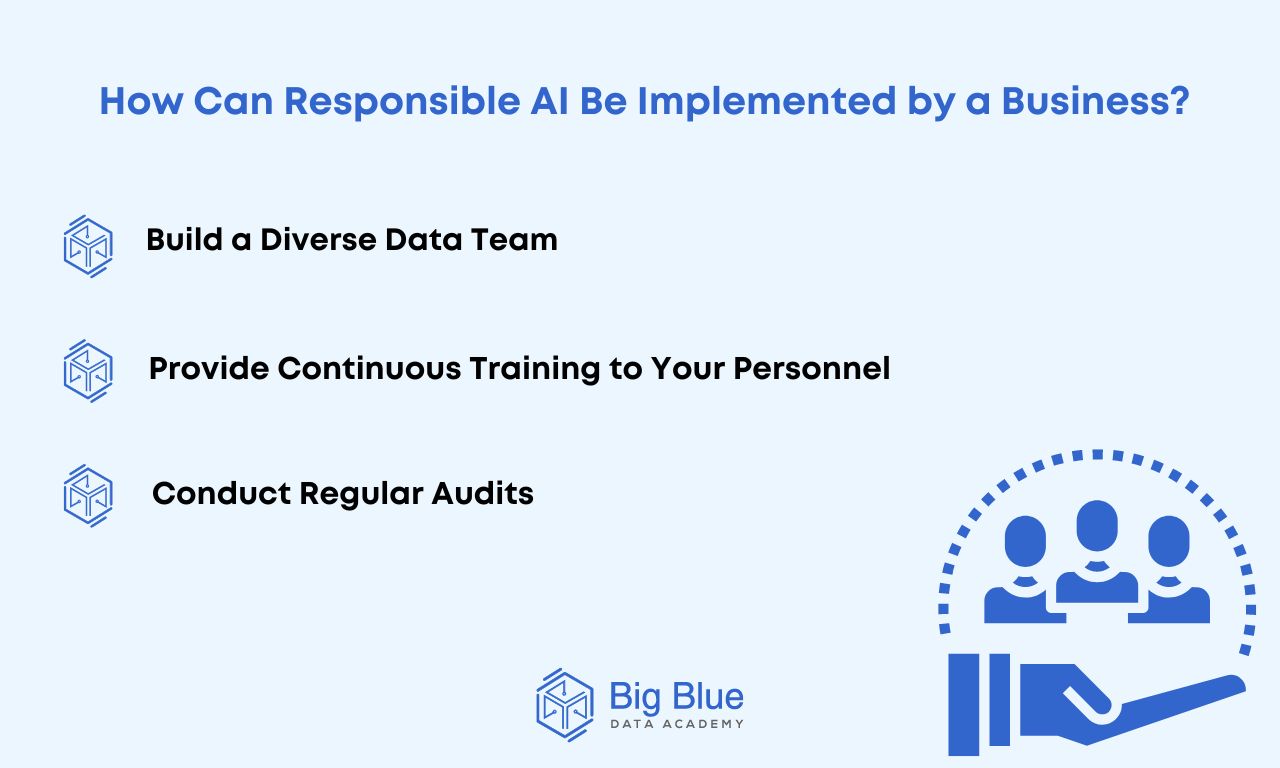The Limits Of AI Learning: A Guide To Responsible AI Implementation

Table of Contents
Data Dependency and Bias in AI Systems
AI systems are fundamentally dependent on data. The quality, quantity, and representativeness of this data directly impact the performance and reliability of the AI model. This dependency, however, brings significant challenges.
The Problem of Biased Datasets
AI models learn from data; biased data leads to biased outcomes. Algorithms reflect the prejudices present in the data they are trained on, perpetuating societal inequalities. This is a critical aspect of the limits of AI learning.
- Algorithmic bias can perpetuate societal inequalities in areas like loan applications, hiring processes, and even criminal justice. An AI trained on historical data reflecting gender or racial biases might inadvertently discriminate against certain groups.
- Data scarcity in certain demographics can exacerbate bias. If a dataset underrepresents a particular group, the AI model may not perform well for that group, leading to unfair or inaccurate results. This highlights the limitations of relying solely on readily available data.
- Careful data curation and preprocessing are crucial to mitigating bias. Techniques like data augmentation, resampling, and the use of fairness-aware algorithms can help create more equitable datasets. Addressing this issue is paramount for responsible AI development.
Data Limitations and Generalization
AI models trained on limited data may not generalize well to unseen situations, leading to unreliable predictions. This is a key limitation of AI learning that needs careful consideration.
- The "black box" nature of some AI models makes it difficult to understand why they fail in certain scenarios. This lack of transparency makes it challenging to identify and correct biases or errors.
- Overfitting can occur when a model learns the training data too well, but performs poorly on new data. This demonstrates the limits of AI's ability to extrapolate from limited experience.
- Robustness testing and validation on diverse datasets are essential to ensure that AI models perform reliably in real-world scenarios. Rigorous testing helps identify and mitigate the limits of AI learning in terms of generalization.
The Interpretability Challenge: Understanding AI Decision-Making
Another significant aspect of the limits of AI learning is the challenge of understanding how these systems arrive at their conclusions.
Explainable AI (XAI): The Need for Transparency
Understanding how an AI system arrives at a particular decision is critical for trust and accountability. This is especially important in high-stakes applications like healthcare and finance. The lack of transparency is a major limit of current AI learning techniques.
- Lack of transparency can hinder debugging and improvement of AI systems. It's difficult to identify and fix errors if you don't understand the decision-making process.
- XAI techniques aim to make AI models more interpretable and understandable. These methods provide insights into the internal workings of AI systems, enhancing transparency and trust.
- Regulations are increasingly demanding greater transparency in AI systems. This reflects the growing recognition of the importance of interpretability in responsible AI implementation.
The Complexity of Deep Learning Models
Many advanced AI models, like deep neural networks, are inherently complex and difficult to interpret. This "black box" problem poses significant challenges for understanding the reasoning behind AI decisions. This is a fundamental limit of AI learning with deep learning models.
- The "black box" problem poses challenges for understanding the reasoning behind AI decisions. This opacity can make it difficult to assess fairness, reliability, and accountability.
- Simplified models or alternative approaches might be needed in situations demanding high interpretability. The choice of AI model should be guided by the need for transparency and explainability.
- Research into XAI is actively ongoing, but complete transparency remains a challenge. This is an area of active research attempting to overcome the limits of AI learning's inherent opacity.
Ethical Considerations and Responsible AI Development
Ethical considerations are paramount when discussing the limits of AI learning and its implementation. Ignoring these aspects can lead to significant harm and erode public trust.
Accountability and Liability
Determining responsibility when AI systems make mistakes or cause harm is a complex legal and ethical issue. This is a crucial aspect of the limits of AI learning, impacting the responsible implementation of the technology.
- Clear lines of accountability are needed for the development, deployment, and use of AI systems. It's essential to determine who is responsible when things go wrong.
- Ethical guidelines and frameworks are being developed to guide responsible AI development. These frameworks aim to address the ethical limits of AI learning and promote responsible innovation.
- Legal frameworks are evolving to address the unique challenges posed by AI. Legislation is catching up with the rapid advancements in AI technology.
Privacy and Security Concerns
AI systems often process sensitive personal data, raising important privacy and security concerns. This highlights a crucial ethical limit of AI learning.
- Data protection regulations need to be enforced to protect individuals' privacy. Strong regulations are essential to prevent misuse of personal data by AI systems.
- Robust security measures are essential to prevent data breaches and misuse of AI systems. The security of AI systems and the data they process is paramount.
- Ethical considerations must be prioritized throughout the entire AI lifecycle. Ethical considerations should not be an afterthought but should be integrated into all stages of AI development.
Conclusion
Understanding the limits of AI learning is not about hindering innovation, but about fostering responsible AI development. By acknowledging the challenges related to data bias, interpretability, and ethical considerations, we can build more reliable, trustworthy, and beneficial AI systems. Addressing the limits of AI learning is crucial for maximizing the benefits and minimizing the risks of this transformative technology. Learn more about responsible implementation and explore the crucial considerations surrounding the limits of AI learning to ensure ethical and effective use of AI.

Featured Posts
-
 River Thames Rescue Police Search For Missing Girl 11
May 31, 2025
River Thames Rescue Police Search For Missing Girl 11
May 31, 2025 -
 From Crypto To Corporations Elon Musks Strategic Shift
May 31, 2025
From Crypto To Corporations Elon Musks Strategic Shift
May 31, 2025 -
 The Good Life Finding Purpose And Meaning In Your Everyday Life
May 31, 2025
The Good Life Finding Purpose And Meaning In Your Everyday Life
May 31, 2025 -
 Addressing The Challenges Of Dangerous Climate Whiplash In Global Cities
May 31, 2025
Addressing The Challenges Of Dangerous Climate Whiplash In Global Cities
May 31, 2025 -
 Tigers Baseball Doubleheader Plans Unveiled Postponement
May 31, 2025
Tigers Baseball Doubleheader Plans Unveiled Postponement
May 31, 2025
